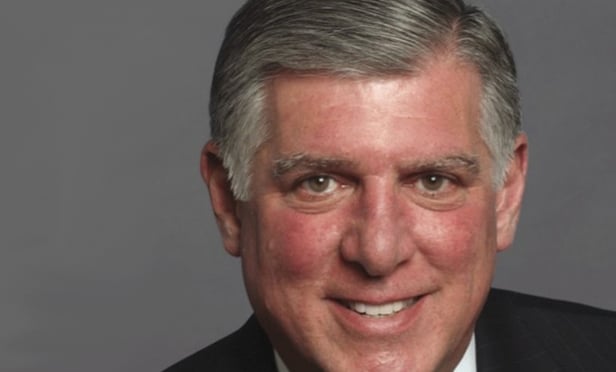
Lately there have been various pundits predicting the risk of recession or even saying we are already headed for one. That makes no sense to me. Recessions are caused by a variety of factors such as excessive inflation, bad lending practices and rising defaults, high interest rates, rising unemployment, collapsing real estate markets—especially housing—or a black swan event like 9/11. None of this is the case right now. Inflation is very low and, even though unemployment is very low, there seems to be a cohort of several million who are able to work if they were just forced off food stamps, fake disability and unemployment insurance. When Congress passed welfare reform and required work in 1994, suddenly many went to work. Now with states requiring the able-bodied to work for food stamps and for Medicaid, the number of those collecting entitlements dropped dramatically and they went to work. Right now at the low wage level, the Obama-era entitlements made it better to stay home than to work for several million able-bodied people. If more states do this, then there will be many more people coming off the dole and back to work which will keep wages somewhat more subdued than we would normally think. In addition, we now have a worldwide labor market which also keeps wage inflation low. Lastly, AI is coming to factories and warehousing very rapidly, and replacing labor. This is now going to flow into hospitality, and even to telemarketing by robots.
Interest rates for the ten year are still 50% of where they have been in what was considered a “normal market range.” Even with the Fed likely to continue to raise rates over the next 18 months, the ten year is still very low by historical standards, and on an after tax basis, they are still so low that they are not creating pressure on real estate or business borrowing. It is likely to be two years,or more before we see Fed rates pushing the ten year back to the 5%-6% range. Even at that level, real estate is still very viable so long as you are not over levered. So high rates are not likely to create a recession for at least two years.
Lenders have been very careful, and even with less regulation, it is unlikely that lenders will go back to the dumb days of 2006-7 anytime soon. We are not likely to have any material rise in loan defaults in CRE or homes for several years. This means that while CE values may be stabilizing here, and may not rise much if at all for several years, they are not going to collapse. Buildings with loans made in the past five years are very unlikely to default anytime soon. While there has been over building in some Multi markets and in hotels in New York, the default rate is not likely to be a major problem for at least two or three years or longer. The single family market is still strong and solid, and is very likely to be much improved over the next two years as the administration materially loosens regulations for mortgages. The combination of continue low rates and no over building, and looser regulation for mortgages should result in a stronger market.
The stock market is at records and, while having a high PE multiple, it is very likely that corporate earnings will justify these levels for quite awhile. This wealth effect has a calming effect on consumers and keeps them willing to spend. Consumer balance sheets are as strong as they have been for decades, and there is little sign of this changing for a long time. Savings are at a near all time high, and due to low rates, most homeowners can easily handle their mortgages. With very low unemployment most have a job and can afford to pay debts and buy things. While student loans are a major problem, they will not cause a recession on their own. Retirees can now sell their homes and net a good cash balance and move to a cheaper place to live. Most people were so shaken by the crash, it is unlikely they will go back to the wild over levered and wild spending days. The psychological impact of the crash cannot be under estimated and will keep many from reckless spending or borrowing for decades. This will keep defaults under control.
Europe and much of the world is in an improving stage of the cycle. This is now likely to continue for several years. Although there are still many very serious problems in Europe, and especially France and Italy, those economies are mending and that will likely continue for several years.
The US banks balance sheets are in the best shape they have been for decades. Once regulations are eased, they have more than enough capital to increase lending. That, combined with the huge amount of equity capital floating around the world, will keep us from having a liquidity issue any time soon. Capital shortage is not going to become a cause a recession. Corporations generally are quite liquid although in some cases now, over levered a little. Many have plenty of liquidity available.
The one thing that is by definition unpredictable is a major black swan event. War in Korea for example. The likelihood of another 9-11 level attack is lower now, and at least now the intelligence agencies are fully prepared and will act quickly to stop one. As we have seen, lone wolf attacks are not going to send the economy off track.
The US is still the safest place to invest and where capital flees. This Is not going to change. Liquidity will remain good in the US.
While CRE values are not likely rise much from here for quite awhile, we are not going to have a recession for at least to more years, and maybe longer if tax reform gets passed, as I believe it will.
The views expressed are the author's own.
Want to continue reading?
Become a Free ALM Digital Reader.
Once you are an ALM Digital Member, you’ll receive:
- Breaking commercial real estate news and analysis, on-site and via our newsletters and custom alerts
- Educational webcasts, white papers, and ebooks from industry thought leaders
- Critical coverage of the property casualty insurance and financial advisory markets on our other ALM sites, PropertyCasualty360 and ThinkAdvisor
Already have an account? Sign In Now
*May exclude premium content© 2025 ALM Global, LLC, All Rights Reserved. Request academic re-use from www.copyright.com. All other uses, submit a request to [email protected]. For more information visit Asset & Logo Licensing.






